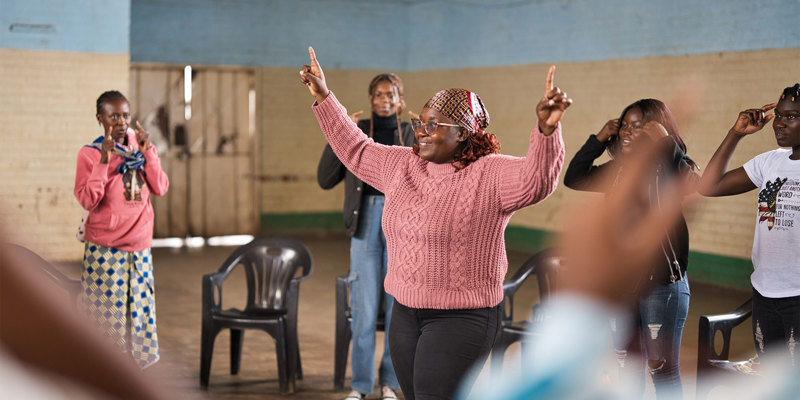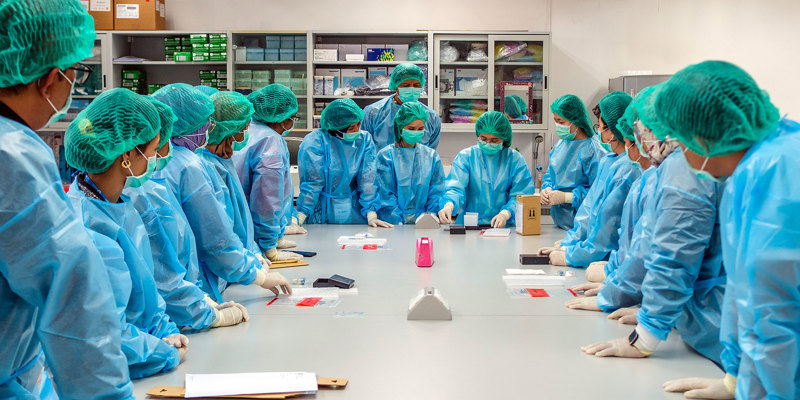New Report Highlights Portuguese-Speaking Countries’ Progress Against HIV, TB and Malaria Over the Last 20 Years
11 October 2022
Novo relatório destaca o progresso dos países de língua portuguesa contra o VIH, a TB e a malária nos últimos 20 anos
download in Português
Lusophone Countries
Regional Impact Report
download in English | Português
A new report [ download in English | Português ] by the Global Fund to Fight AIDS, Tuberculosis and Malaria highlights the impact of Global Fund-supported programs to fight HIV, tuberculosis (TB) and malaria over the last 20 years in six Lusophone countries – Guinea-Bissau, Sao Tome and Principe, Mozambique, Cabo Verde, Angola and Timor-Leste.1
On the malaria front, over 112 million people with malaria have been treated since 2002, and close to 20 million households have been covered by indoor residual spraying across the six countries. In Mozambique for example, investments in malaria prevention have led to malaria deaths decreasing by 87% between 2007 and 2019.
Global Fund-supported programs have also turned the tide on HIV and TB. In Sao Tome and Principe in 2020, 100% of patients infected with both HIV and TB were enrolled on antiretroviral therapy, and TB preventive therapy among people living with HIV increased from 8.7% in 2018 to 30% in 2019. Cabo Verde has been a leader in eliminating vertical transmission of HIV – when the virus passes from a mother to her child during pregnancy – and is the only country in West and Central Africa to be close to achieving this goal.
Overall, Global Fund investments in these six Portuguese-speaking countries have saved over 2 million lives since 2002. In 2021, our programs in these countries put more than 1.8 million people on antiretroviral therapy for HIV, treated nearly 160,000 people with TB, and distributed over 2 million mosquito nets to prevent malaria.
Lusophone countries have been strong advocates for increased resources in the fight against HIV, TB and malaria. Their sustained commitment, coupled with strategic partnerships and increased domestic financing, has led to these transformative results.
Portugal, a longstanding donor to the Global Fund, has also been instrumental in reducing the burden of epidemics that have stunted these countries’ development over the past 20 years, contributing a total of US$17.2 million to the Global Fund, including a public-private contribution of €126,250 to the Global Fund’s COVID-19 Response Mechanism.
In September 2022, at the Seventh Replenishment Conference, Portugal demonstrated outstanding leadership in global health with a strong commitment to help end AIDS, tuberculosis and malaria and save millions of lives around the world. Portugal pledged €1.5 million to support Global Fund programs over the next three years – an increase of 50% over and above its pledge for the 2020-2022 period.
In addition to its financial contribution, Portugal has partnered with the Global Fund to provide technical assistance in Lusophone countries where Portuguese-speaking health experts are in severe shortage.
Overall, with the support of Portugal and other donors, the Global Fund partnership has saved 50 million lives and cut the combined death rate from AIDS, tuberculosis (TB) and malaria by more than half over the last 20 years.
[1] Brazil and Equatorial Guinea stopped receiving Global Fund grants in 2011. Between 2002 and 2011, the Global Fund invested US$38.67 million in Brazil and US$29.9 million in Equatorial Guinea.







